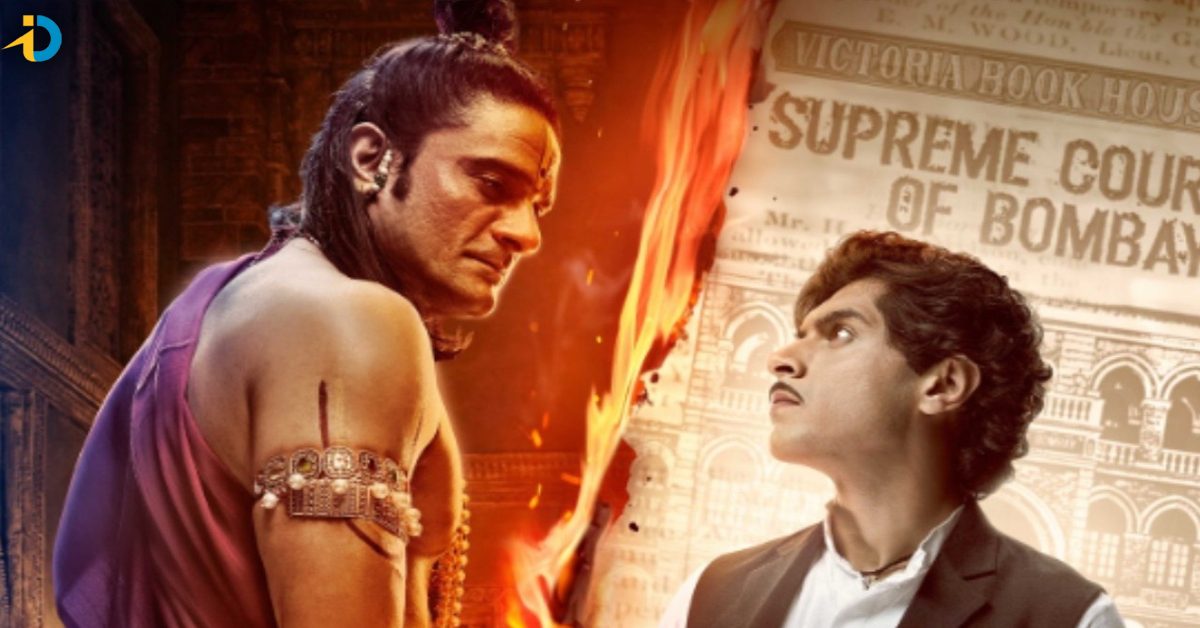Aditya N
Aditya N

Story:
Maharaj’s story is set against the backdrop of over a century and a half ago when a journalist named Karsandas Mulji gets motivated and supported by the social reformer and political figure Dadabhai Naoroji, who also gets engaged in a fierce confrontation with a prominent religious leader from the Gujarati Vaishnav sect named Jadunath Maharaj aka JJ. JJ is a spiritual leader who holds significant influence over the community and engages in the sexual exploitation of his female followers. The film’s narrative focuses on how Karsandas successfully exposed JJ’s harmful intentions/acts and brought him to justice.
Performances:
Junaid Khan shines brightly and stands his ground firmly in every frame. He appears innocent in one scene and demonstrates immense courage in the next. His dialogue delivery in the courtroom scene is praiseworthy. Shalini Pandey, who debuted in Hindi in YRF’s earlier film Jayeshbhai Jordar, has only a few scenes but excels in them and looks flawless. She effortlessly brings innocence, righteousness, and sympathy in the required scenes. Jaideep Ahlawat is terrific as the menacing JJ.
Analysis:
Taking place in the 1980s, Maharaj recounts the era of Karsandas Mulji (Junaid Khan), a journalist, writer, and social reformer from Gujarat. He valiantly fought for women’s rights and took a stand against the immoral practices of religious leader Jadunath Maharaj, also known as JJ (Jaideep Ahlawat). Under the guise of superstitious rituals like ‘charan seva,’ Jadunath sexually exploited his female followers. Karsan’s determination to expose this religious leader sparks when he witnesses his fiancée, Kishori (Shalini Pandey), fall victim to Jadunath’s wrongful actions at his mansion. In response, Jadunath files a defamation lawsuit against Karsan for publishing an article in the newspaper Satyaprakash, which detailed his scandalous escapades. While the film’s intentions are not wrong, and the director successfully brings the required emotional charge in a few crucial moments, the rest of the film fails to draw the same impact, and it feels like a simplistic take on such a revolutionary storyline.
Positives:
The first-ever turn in the film, where Karsan finds his fiance tricked into JJ’s evil superstitious beliefs, was handled very well. The emotional turmoil of Karsan and the following shocking events in his life were shown with good impact. The climax of the film was also decent, with Karsan’s speech getting the deserved effect. Additionally, there is a nuanced but important allusion to the freedom of the press, and Karsan, originating from a Vaishnav community, made every effort to safeguard it.
Negatives:
Maharaj prioritizes crafting a rich visual experience over provoking the much-needed emotional depth and disdain towards the atrocities committed in the name of organized religion. While the unpleasantness and corruption within the grand mansion symbolizing the character’s power can be sensed, the presentation is subtly packaged and conveyed with a touch of excessive restraint and prudence. Because of this, the overall big message that the film intended to communicate did not come out powerfully.
Rating: 2.5/5
Last Line: Maharaj: Junaid Khan shines, but the film works only in a few places